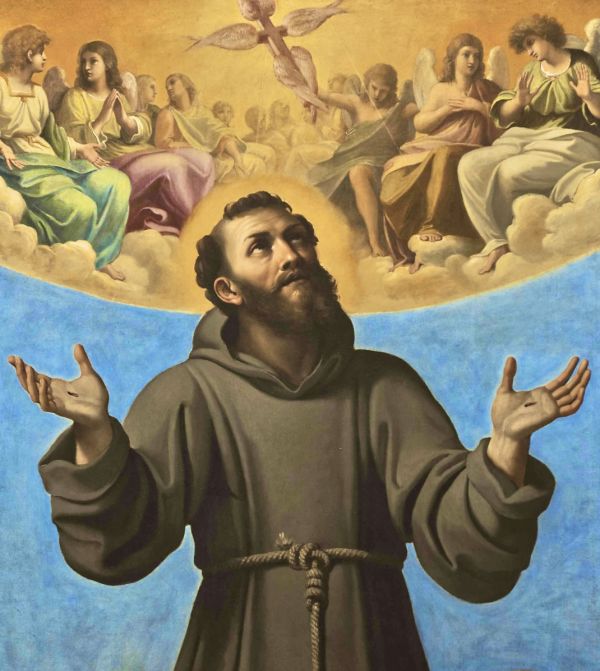Francis held dear that expression from the Gospel:
«By this all will know that you are my disciples, if you have love for one another» (Jn 13:35).
He cherished the transparent, simple and convincing witness of his fraternity, which would thus preach the Gospel with its life.
In the Sources, in the Legend of the Three Companions, we read:
"Deeply humble and mature in charity, each nurtured for his brother the sentiments one has towards a father and lord.
Those who, because of the office they held or because of personal qualities, had a pre-eminent role in the fraternity, made themselves humbler and smaller than all. And everyone was disposed to the most generous obedience, always available to the will of the superior, without seeking whether the order received was right or not, because he was convinced that any command was in conformity with the Lord's dispositions. In this way, it was easy and sweet to carry out any precept.
They were careful not to fall victim to unbridled desires. They were implacable judges of themselves, concerned not to harm one another in any way" (FF 1448).
And again:
"The brothers strove to banish all rancour and incompatibility, and to keep exchangeable love intact.
They did their utmost to replace every vice with the corresponding virtue, inspired and assisted in this by the Grace of Jesus Christ" (FF 1449).
Here is another passage that wonderfully describes their love for one another in the Lord:
"Nothing they held as private property, but books and other things were made available to all, according to the directive transmitted and observed by the Apostles.
Although they were in a state of true destitution, they were spontaneously generous with whatever was offered to them in the name of God.
They joyfully donated, out of love for Him, the alms they collected, to those who asked for them, especially the poor" (FF 1450).
It was true love, because it was concrete.
Francis had taught his brothers that money was worth no more than donkey dung, thus protecting them from dangers.
And the Sources inform:
"They were happy in the Lord, always, having nothing within themselves or among them that could in any way upset them.
The more they were separated from the world, the more they held fast to God.
They advanced on the way of the cross and the paths of justice; they removed every obstacle from the narrow path of penance and evangelical observance, so as to leave those who would follow them a smooth and safe road" (FF 1454).
And Clare of Assisi, in her stupendous Testament, addressed to her sisters, says:
"Having chosen us, therefore, for such a lofty task as this, that in us may be mirrored all those whom he calls to be examples and mirrors of others, we are exceedingly bound to bless and praise the Lord, and to grow more and more every day in goodness.
Therefore, if we live according to the aforementioned form of life, we will leave others a noble example and, through a very short effort, we will earn the pallium of eternal beatitude" (FF 2830).
Mutual love went beyond the walls, purifying and perfuming every polluted air with charity, offering bright mirrors of fraternal life.
Seeing it as a reflection of the glory of God, Francis' concern was the pursuit of heavenly things by the entire fraternity.
He said, addressing the brothers of the whole Order:
"The great assembly is our Order, almost like a general synod that gathers from all parts of the world under one rule of life. In this the wise draw to their advantage the qualities proper to the simple, for they see people without culture ardently seeking heavenly things and, though without human instruction, attaining through the Spirit the knowledge of spiritual realities.
In this Order the simple also profit by that which is proper to the wise, when they see illustrious men humbling themselves with them in the same way, who could live full of honours in this world.
Hence the beauty of this blessed family, which by its manifold qualities forms the joy of the Father of the family" (FF 778).
This special awareness and insight into the divine secrets made the Saint and the Fraternity a singular image of the Glory of God, having received His freedom.
5th Sunday in Easter C (Jn 13:31-33a.34-35)












